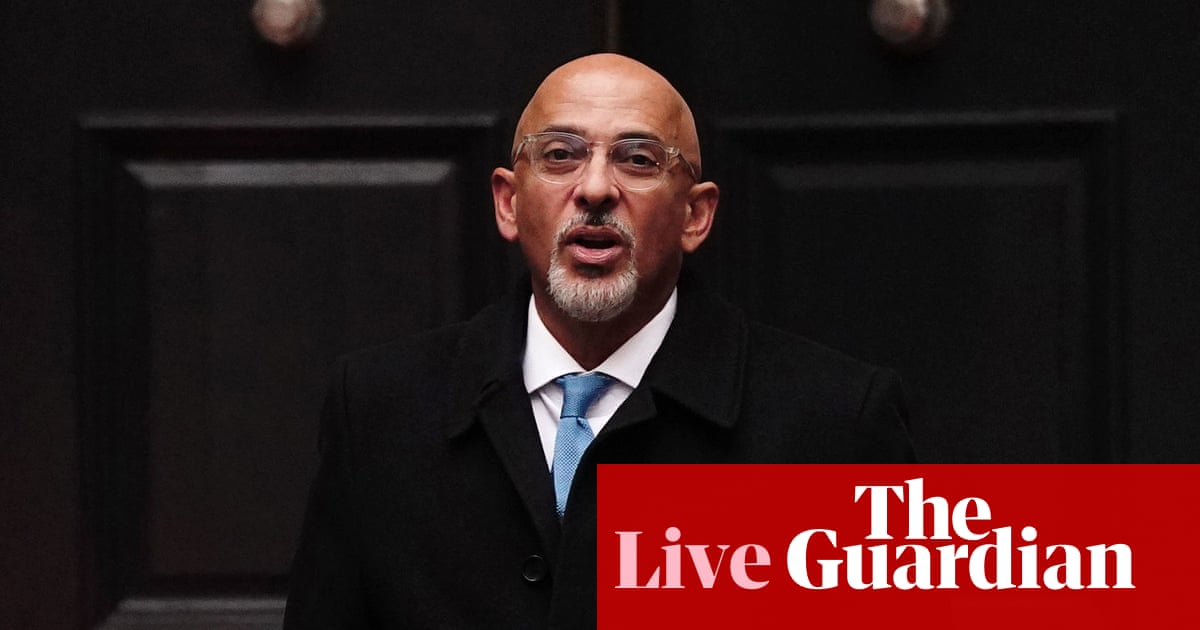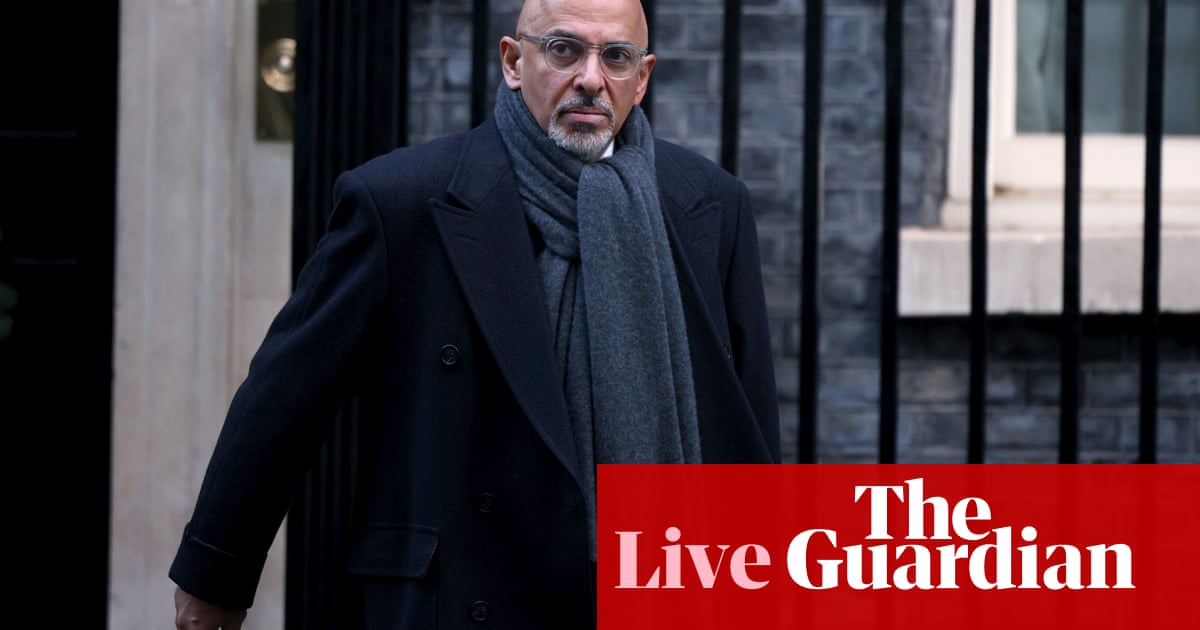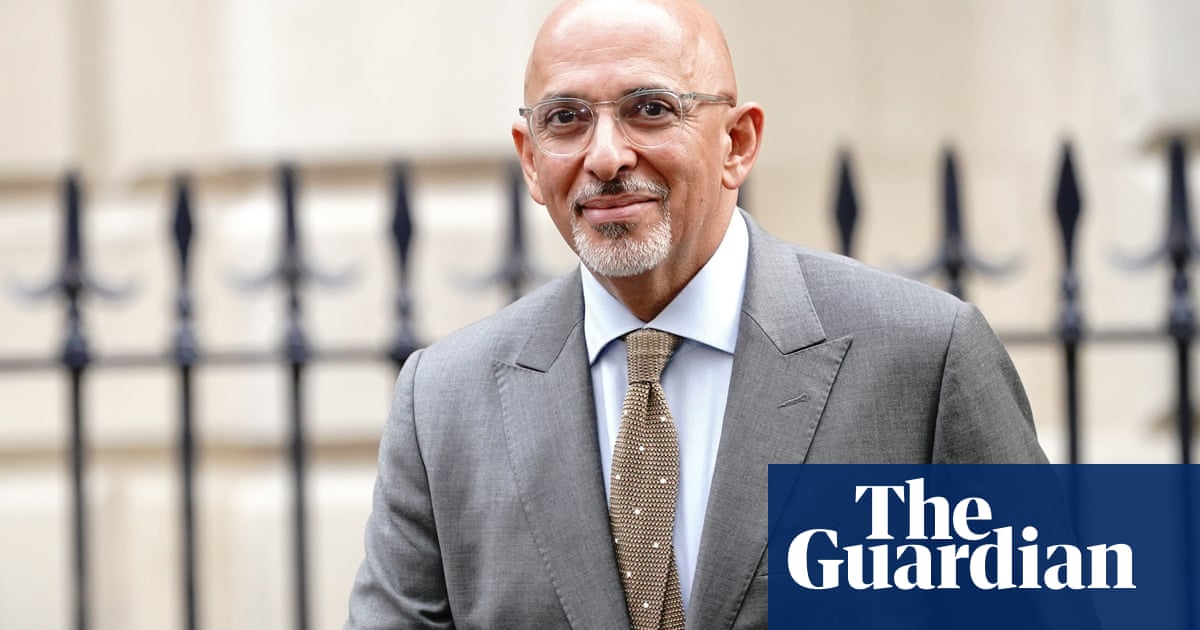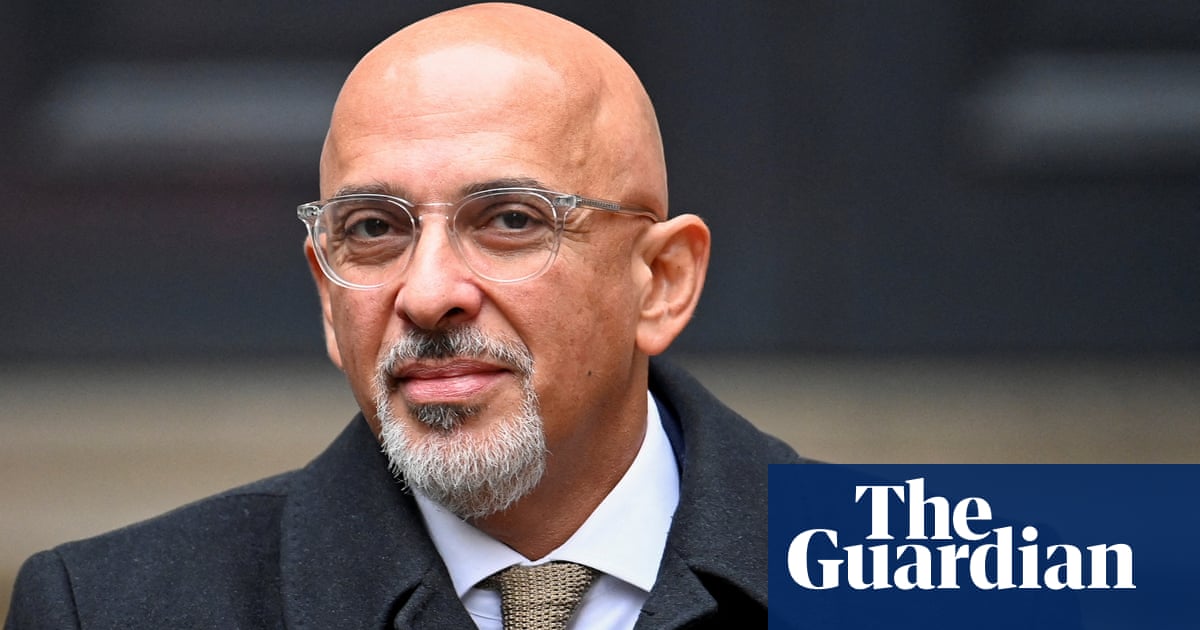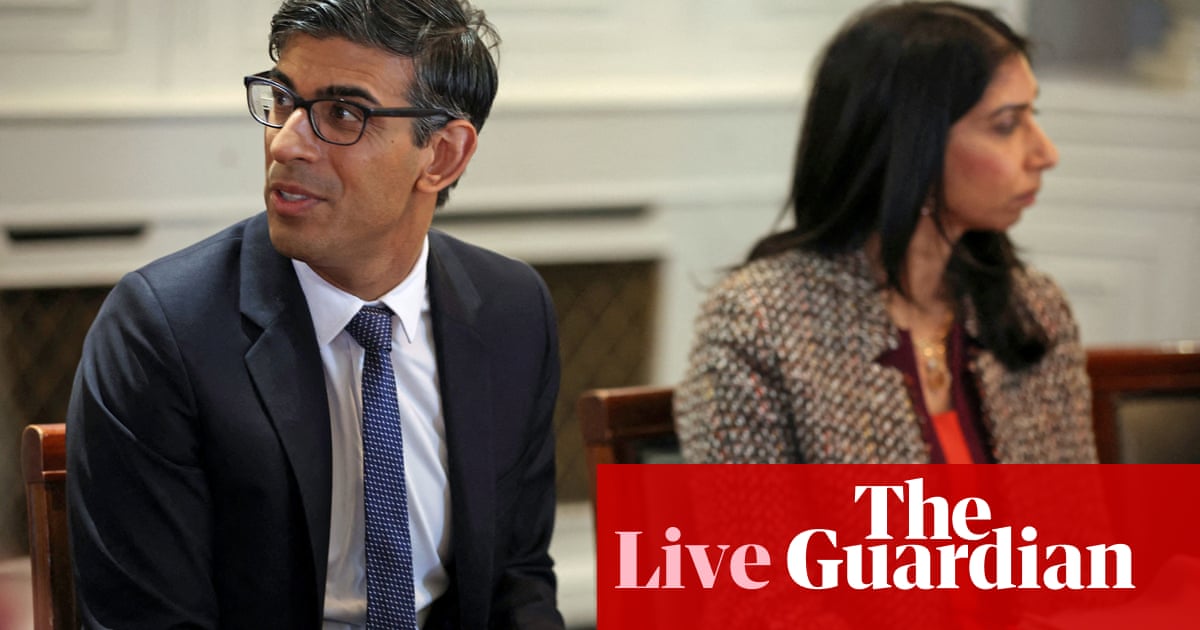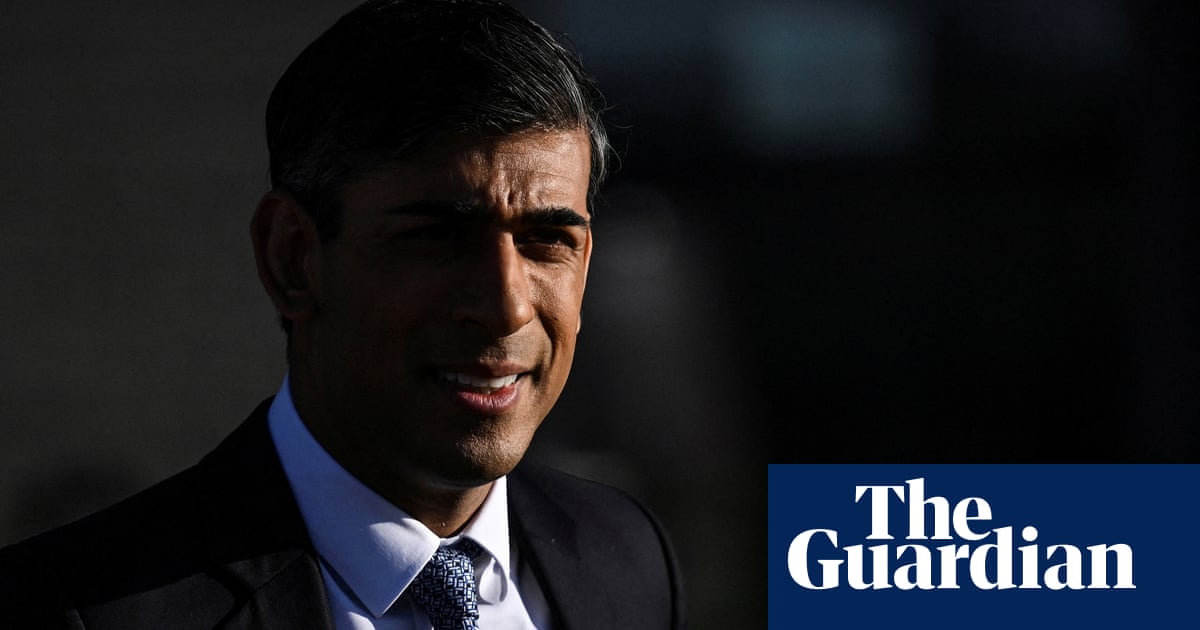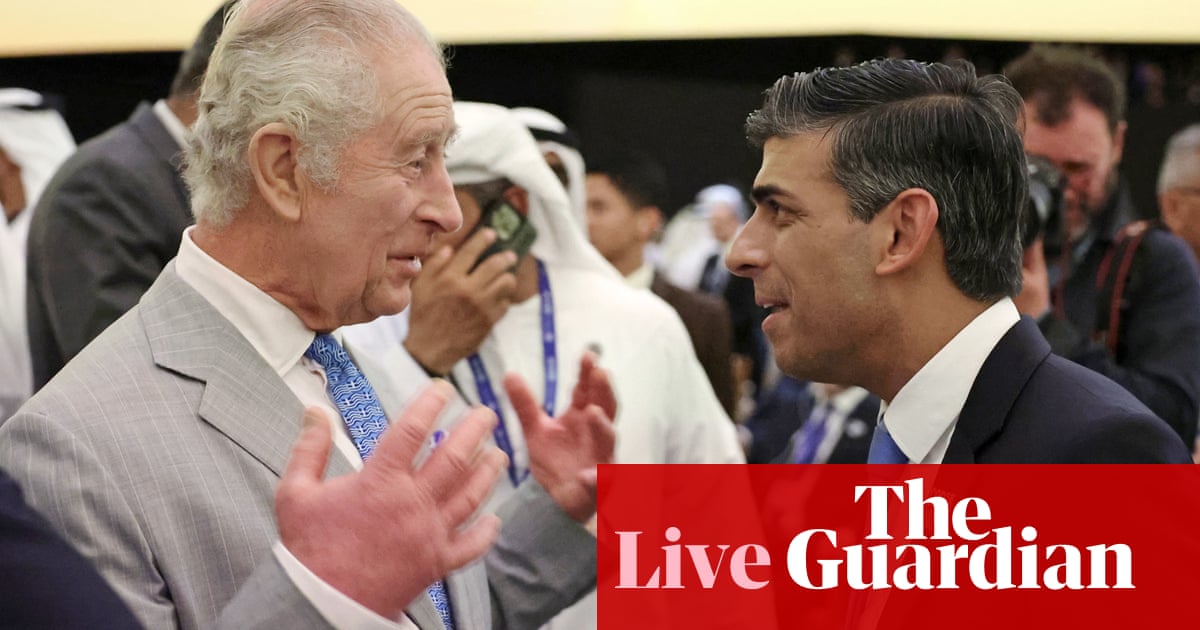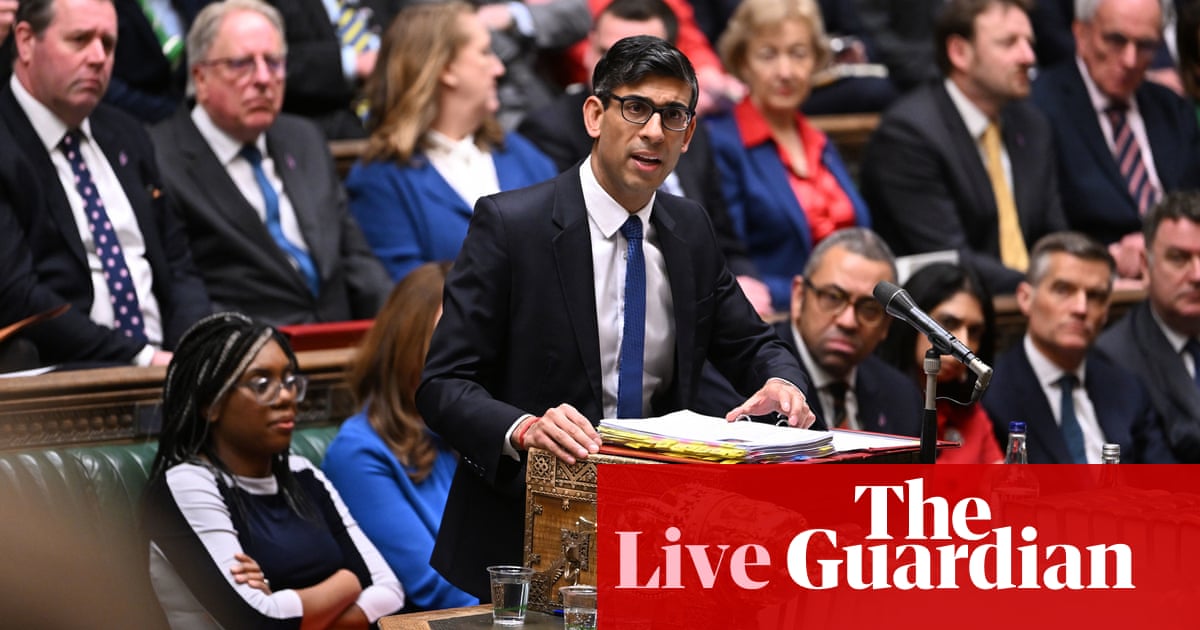
Afternoon summary
Rishi Sunak has finally said that he has never paid a penalty to HM Revenue and Customs. (See 5.49pm.)
Keir Starmer has suggested that the job of prime minister is “too big” for Rishi Sunak. (See 1.33pm.) He delivered the jibe during exchanges at PMQs where he also directly linked questions about the Conservative party chair’s finances to the prime minister’s own family tax situation.
Michael Gove has promised to bring the “spirit” of Thatcherism to the north of England, at a conference where he failed to meet most of the region’s leaders.
The Treasury is reviewing its procedures after the Russian founder of a mercenary army was given permission to circumvent sanctions to attempt to silence a British journalist.
The government’s economic forecaster has cut its prediction for UK growth this year, limiting the Treasury’s spending firepower in the forthcoming budget, according to a report.
No 10 finally says Rishi Sunak has never paid penalty to HMRC
For some days now Downing Street has been refusing to say whether or not Rishi Sunak has ever paid a penalty to HMRC. At first it sounded as if the spokesperson just did not know, but by lunchtime today – as Downing Street was still dodging this question (see 2.10pm) – the refusal to answer sounded more suspicious.
At its own briefing today Labour said that Keir Starmer had never paid a penalty to HMRC, and it challenged Sunak to answer the question.
Now he has. A No 10 spokesperson has just released this statement to the media.
Nandy says Labour"s devolution bill would allow councils to request any powers already granted to similar bodies
In his speech in Manchester Michael Gove, the levelling up secretary, hinted that there would be a modest level of fiscal devolution for local government in the budget. (See 4.50pm.) In her subsequent speech to the same Convention of the North conference Lisa Nandy, the shadow levelling up secretary, said Labour would implement “the biggest transfer of power out of Whitehall and Westminster”.
She said that, without devolution, Britain would not have a future.
We can debate the merits of differing devolution models and funding formulas.
But this is the collective task facing our generation of political leaders.
To respond to that siren call or face obsolescence. To change or die.
We must succeed where successive generations have failed, in various ways, to varying degrees, for a century, and we must do so for one simple reason - because ending a century of centralisation and unleashing the power of all people in all parts of Britain is no longer a nice to have, a local or a regional issue, it is at the heart of whether this country has a future or not.
It is the only way to heal a fractured and divided nation.
It is the only way to build an economy that works for most of us again, so we can fund our public services and sustain thriving places.
In short, it is the only way to build a country that works.
Recently Keir Starmer announced plans for a “take back control” bill in Labour’s first King’s speech to give new powers to mayors and local authorities. Nandy claimed this would “flip the presumption of power from Whitehall to the town hall”. She explained:
Oppositions tend to like the idea of handing over power. Governments less so.
But if you ask for powers, we will hand them over or explain why not. And if there are reasons why not we will be obliged to set out a path for communities to realise that ambition.
No more top-down determinism of which communities qualify for powers and which don’t. An end to central government dictating local governance models as a bargaining chip.
In the [Take Back Control] Act will be a promise, written into law, that leaders can request anything that has already been devolved to another area of a similar scale within England.
Sunak to host away day for cabinet at Chequers tomorrow
Rishi Sunak and his cabinet will decamp to Chequers for an away day tomorrow as the government continues to face questions about the tax affairs of Nadhim Zahawi, PA Media reports. PA says:
The outing, which Downing Street said would focus on the prime minister’s political priorities, was dubbed a “hideaway day” by opposition parties.
Zahawi is expected to join the gathering at the country retreat against a backdrop of an ethics inquiry into the Conservative chairman.
Labour leader Keir Starmer grilled Sunak in the Commons about the controversy today, accusing him of being too weak to sack his embattled party chairman.
The prime minister said it might be “politically expedient” to sack Zahawi, but it is important for “due process” to be followed.
Downing Street offered few details about what the away day would entail, but the prime minister’s official spokesman said cabinet ministers would be “focused on the five priority areas that the prime minister talked about in his speech, both in terms of getting an update on progress on those five goals and what more can be done”.
Gove says budget will contain plans to "extend local government autonomy" after claims levelling up awards too centralised
Last week Andy Street, the West Midlands mayor who is arguably the most senior Conservative in local government, launched a fierce attack on the way levelling up funds are distributed. Referring to the levelling up awards released that day, he said they showed “why Whitehall’s bidding and begging-bowl culture is broken” and why “the sooner we can decentralise and move to proper fiscal devolution the better”.
To get money from the levelling up fund, councils had to draw up a bid and make their case to Westminster. Much local government funding is distributed this way, and for years councils have argued that it would be better for central government to distribute lump sums with no strings attached, allowing local leaders to decide how the money should be spent.
In his speech to the Convention of the North conference, Michael Gove, the levelling up secretary, said the budget would contain plans to “extend local government autonomy”. He said:
I am always open to discussion about how we can further refine how we deliver funding for levelling up, and give local communities more control. And while I believe a competitive process in allocating funding can help drive innovation and ensure rigour in delivery I do recognise that there is a need to reduce the bureaucracy involved in the many repetitive bidding processes which have grown up over time. Which is why I am working with the chancellor to simplify funding allocations and extend local government autonomy. Again, more detail will follow the March budget.
Gove also said he wanted to give the West Midlands, and Greater Manchester, new powers over affordable homes. He said:
We are currently in talks with both Greater Manchester and The West Midlands to strengthen the hands of both mayors. We want to devolve even more housing funding, including exploring giving more control of the affordable homes programme to West Midlands and Greater Manchester.
At the moment London is the only mayoral authority controlling this budget and if we want more of the homes we need in the places where they are needed, regenerating those brownfield sites and driving growth, this devolution is vital and necessary.
Mayors in north of England call for TransPennine Express to lose contract after cancellations hit 40% some days
Mayors in the north of England have called on the government to strip TransPennine Express (TPE) of its contract after exclusive figures obtained by the Guardian showed that more than 40% of its trains have been cancelled some days this month.
Andy Burnham, the mayor of Greater Manchester, said he and other northern mayors had “reached the end of the line” with TPE.
Speaking at the Convention of the North in Manchester, Burnham said:
We are in a position where we can’t accept it any more. We can’t allow them to damage our economy day after day. We can’t allow them to damage people’s lives, day after day. There has to come a point where you say: we can’t accept this any more.
Statistics gathered by Transport for Greater Manchester showed that TPE cancelled 18,587 services last year (from December 2021 to November 2022), 20% of the timetable.
Figures obtained by the Guardian showed that the service has deteriorated further this year. Three days this month TPE has cancelled more than 40% of services. The nadir was on 18 January, when the cancellation rate was 46%. Excluding strike days, the overall cancellation rate for the month was 23%.
“If this was happening in the south of England … there would be a national outcry,” said Jamie Driscoll, the mayor of the North of Tyne.
Tracy Brabin, the mayor of West Yorkshire, said TPE’s failures were costing the north of England £2m a week.
A spokesperson for TransPennine Express said:
We know that the service being offered to customers is unacceptable at present and we want to assure our customers throughout the region that we are doing all we can to resolve a number of issues and deliver a train service they can rely on.
Prolonged disruption has been caused by a combination of ongoing high levels of sickness and an unprecedented training backlog following the pandemic, coupled with increased training demands to support major route and timetable upgrades, together with the withdrawal from overtime working by Aslef drivers which has dramatically reduced our roster flexibility.
The biggest and most immediate positive impact for customers would be for Aslef to allow drivers to work overtime again. Late last year we were given authority from [the Department for Transport] to make a new overtime offer but this was rejected by Aslef without putting it to their members. The offer remains on the table and we encourage everyone who can influence the situation to work together to improve the situation for all.
Gove cites Thatcher"s "active government" approach to reviving London"s Docklands as model for levelling up
Michael Gove has described Margaret Thatcher as a champion of “active government” in a speech saying levelling up should achieve for the north of England what her government achieved in London’s Docklands.
In a speech to the Convention of the North conference, Gove, the levelling up secretary, said:
The experience of successful economic transformation demonstrates that growth is not secured by absent government but by active government.
A government that plays a strategic role, irrigating the soil for growth as Mrs Thatcher did, specifically in the Docklands.
When the Thatcher government took office in 1979, London’s docklands were a derelict economic desert.
The original vision for regeneration of the area, from the Treasury of the time, was simple: just cut taxes and deregulate and a thousand flowers will bloom in the dusty and contaminated soil of the docklands.
Gove said Thatcher helped set up deeper government intervention through the London Docklands Development Corporation, bringing jobs and housing and transforming that area of the capital.
Citing the Docklands experience as a model for levelling up, he went on:
Government created the environment, the private sector created the jobs. London Docklands today is an economic success story.
One of the most signal successes we owe to Mrs Thatcher’s government, and it is that spirit that animates our levelling up policies: active government.
Treasury says it will review process that allowed Russian warlord under sanctions to get exemption to sue British journalist
The Treasury is reviewing its processes amid reports it helped a Russian warlord circumvent UK sanctions to take a British journalist to court, MPs have been told.
Responding to a Labour urgent question about the government’s decision to allow a Russian mercenary leader exemption from sanctions laws to sue a British journalist, James Cartlidge, a Treasury minister, said he would not comment publicly on the case of Yevgeny Prigozhin, but he confirmed a review was under way on its decision-making.
He told MPs:
It is a longstanding custom that the government does not comment publicly on individual cases.
It would not be appropriate to break this custom even in a case as serious as this where there is obviously public interest …
However, I can confirm, in light of recent cases and related to this question, the Treasury is now considering whether this approach is the right one, and if changes can be made without the Treasury assuming unacceptable legal risk and ensuring that we adhere to the rule of law.
Cartlidge said the Treasury’s Office of Financial Sanctions Implementation (Ofsi) follows a strict set of rules “for strong constitutional reasons” when granting individuals subject to sanctions permission to bring lawsuits because “everyone has a right to legal representation”.
He also said that, although Rishi Sunak was chancellor at the time this decision was taken, he played no part in it.
David Lammy, the shadow foreign secretary who tabled the urgent question, said:
The government appears to have granted a waiver for a warlord that enabled him to launch a legal attack on a British journalist. This is a perfect example of a Slapp (strategic lawsuit against public participation) lawsuit, designed to silence critics through financial intimidation.
And Liam Byrne, a former Labour MP, said the case was “outrageous” and that the rules had to change. He said:
The minister has just confessed to the house that sanctions implementation is out of ministerial control and the result of that was a waiver was issued to a warlord to sue an English journalist in an English court.
We sanctioned Prigozhin because he was operating ‘a deniable military capability for the Russian state’. Ten months later civil servants under his control signed off £3,500 for business-class flights, £320 for luxury accommodation at the Grand Hotel Europe Belmond, £150 for subsistence and more.
Let’s be very clear about what the leaked emails from that conversation show. They show that Prigozhin’s lawyers wanted to sue Eliot Higgins and Bellingcat ‘because public rebuttal of the article is one of the reasons for his sanctions designation’.
He signed off money for a warlord to prosecute an English journalist in an English court to undermine the sanctions regime that he himself is responsible for.
ITV’s Robert Peston says he expects the inquiry into Nadhim Zahawi to conclude within 10 days.
No 10 refuses to say whether Sunak himself has ever paid penalty to HMRC
Here are the main points from the post-PMQs Downing Street lobby briefing.
The PM’s press secretary defended Rishi Sunak’s decision to tell MPs last week that Nadhim Zahawi had “addressed in full” questions about his tax affairs. The press secretary said that, since then, additional facts had come to light. “The prime minister can only go off what he knows,” she said.
The press secretary declined to say whether Sunak was disappointed that Zahawi did not reveal full details of his tax affairs earlier. Asked if this was the case, she said:
I am not going to comment on the PM’s emotional state. A lot of what we understand is via media reports, and some of it quite speculative, that is why it is right that the independent adviser establishes the facts before any further action is taken.
The press secretary refused to say whether Sunak had ever paid a tax penalty. Asked about this, she said:
You wouldn’t expect me to get into the prime minister’s tax affairs, they are confidential. The tax affairs of an individual, irrespective of who they are, are confidential.
But she confirmed that Sunak would publish his tax return “in due course”.
The PM’s spokesperson suggested that that, even if the inquiry finds Zahawi has broken the ministerial code, he might not have to resign. In the past any breach of the code was regarded as a sacking offence. But the spokesperson pointed out that a recent update said that this was no longer a binary matter, and that some breaches could be dealt with by measures short of resignation.
Zahawi"s position "untenable" unless he can explain why he paid penalty to HMRC, says Tory MP
The Conservative MP Nigel Mills told Radio 4’s World at One that Nadhim Zahawi’s position as party chair would remain untenable unless he could give a proper explanation as to why he paid a penalty to HM Revenue and Customs.
Mills said an explanation was essential, and that it would not be enough for the inquiry by Sir Laurie Magnus, the No 10 ethics adviser, to conclude Zahawi had not broken the ministerial code.
Mills explained:
I just don’t see an investigation into the ministerial code resolves this because if he is cleared by that, that won’t stop people asking questions about what on earth happened.
The guy that is doing the investigation reports to the prime minister and the prime minister makes decisions. It is not a public process.
If that finds there was no breach of the ministerial code that is not going to be an end of this matter. I think the only way to resolve this is to make clear what the situation was that gave rise to a significant penalty.
If that can be explained we can all move on. If it can’t, then clearly his position won’t be tenable.
PMQs – snap verdict
One of the reasons why people dislike PMQs is because it’s a format that prioritises insult and abuse. Insults are cruel, and normally trite, and politics should be calm and mature, but life isn’t always like that – and the House of Commons certainly isn’t – and today Keir Starmer dialled up the brutal. For weeks now Labour has been trying to ensure that, when people see Rishi Sunak, they think of him as “weak”. It has probably worked up to a point, but today Starmer deployed a new version of the same theme, suggesting the job of PM might be “just too big” for Sunak.
Here is the full quote:
We all know why the prime minister was reluctant to ask his party chair questions about family finances and tax avoidance. But his failure to sack him when the whole country can see what’s going on shows how hopelessly weak he is – a prime minister overseeing chaos, overwhelmed at every turn.
He can’t say when ambulances will get to heart attack victims again. He can’t say when the prisons system will keep streets safe again. He can’t even deal with tax avoiders in his own cabinet. Is he starting to wonder if this job is just too big for him?
At one level this is just name calling (and Starmer must feel a bit queasy going this low). But Labour is fully entitled to point out that Sunak is an inexperienced PM leading an ungovernable party at the tail-end of what is arguably the least effective administration in the modern era. And “just too big for him” resonates because it’s reminder of Sunak’s diminutive status. As the photographs show, he is not a big guy.
Most of what gets said at PMQs is forgotten a week later. This is the sort of jibe that people may remember, and so it was a good result for Starmer.
Sunak’s response was to argue that, when Starmer failed to resign from Jeremy Corbyn’s cabinet, he was the one being weak and unprincipled. It is a reasonable argument. But a) it’s an old one, b) it’s a version of ‘you’re just as bad too’ (never a winning position), and c) Sunak could not encapsulate it in an insult as vivid as Starmer’s.
Until then, in a PMQs that was always going to be a challenge, Sunak was doing better than might have been expected. When Starmer challenged him about the Nadhim Zahawi inquiry, although he dodged the question about whether Zahawi should have been chancellor, he had a perfectly good response to the “what’s changed from last week?” question. (See 12.13pm.) And a lot of people will agree with the point he made about Starmer being “opportunist”.
(Incidentally, it is worth noting that there was nothing at all in what Sunak said to suggest that he thinks Zahawi will remain in post after the No 10 inquiry is over.)
Starmer was probably more effective when he asked about the Zara Aleena case, and the failures with the probation service. His question to Sunak about whether he would agree with Zara’s family about the government having blood on its hand was one of those to which there is no good answer for a politician. Sunak was right to express his sympathy – but then wrong to try to make a party political point.
Listening to these exchanges, though, a lot of people may conclude that this was just the sort of appalling tragedy that happens occasionally under all governments. People know that A&E wards are in crisis, because most of us know someone who has had personal experience of one in recently weeks. But most of us don’t know someone who has been murdered as a result of a probation disaster. Starmer was arguing that this was not a one-off, and that this was result of successive mismanagement of the service. He is almost certainly right (remember Chris Grayling?), but the public may not yet be convinced.
Carolyn Harris (Lab) asks about support for leisure centres.
Sunak says he agrees exercise and leisure centres are important. The government supported them during the pandemic, he says.
That’s it. PMQs is over.




